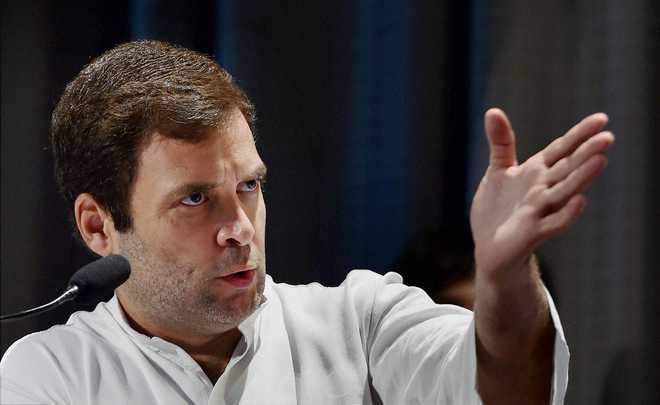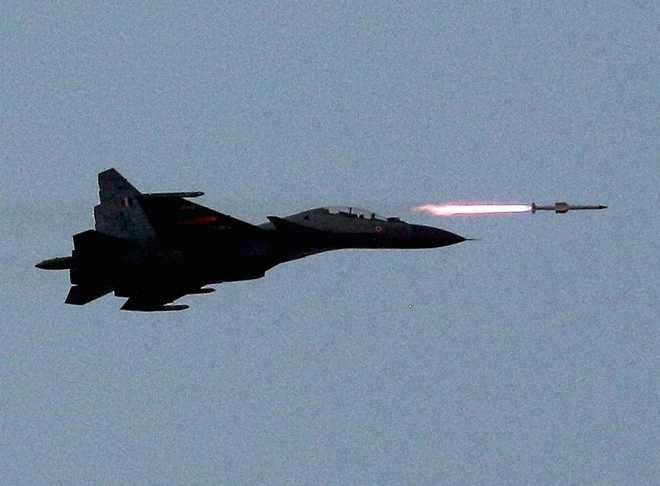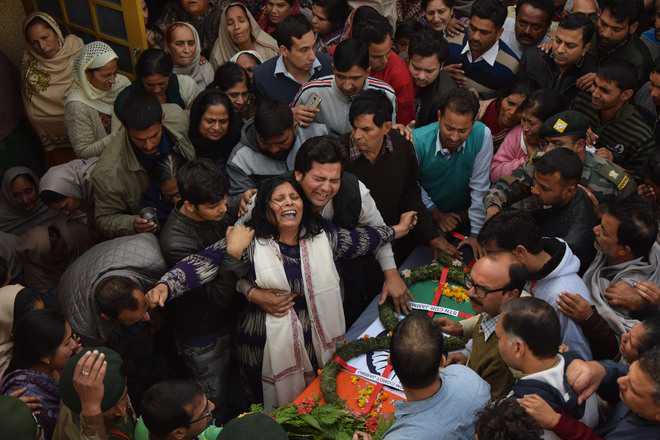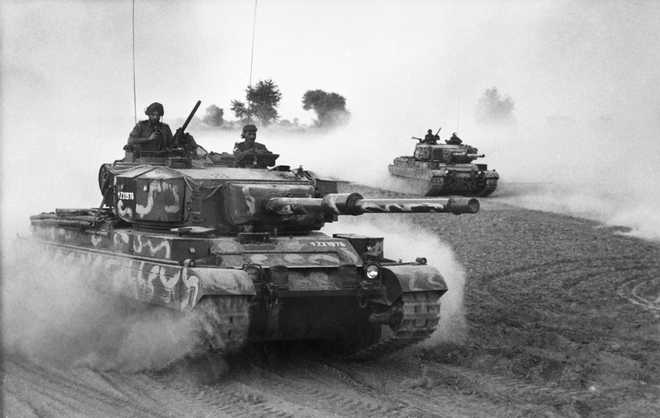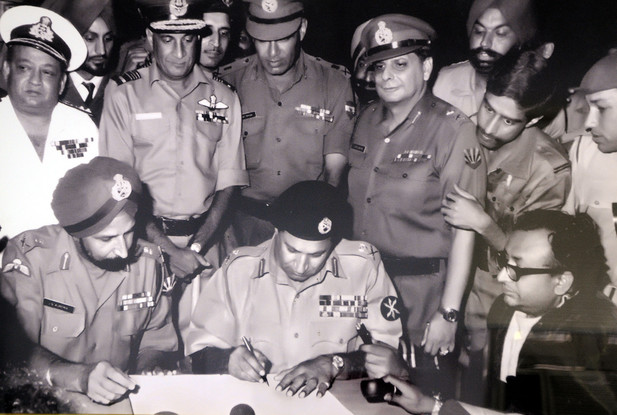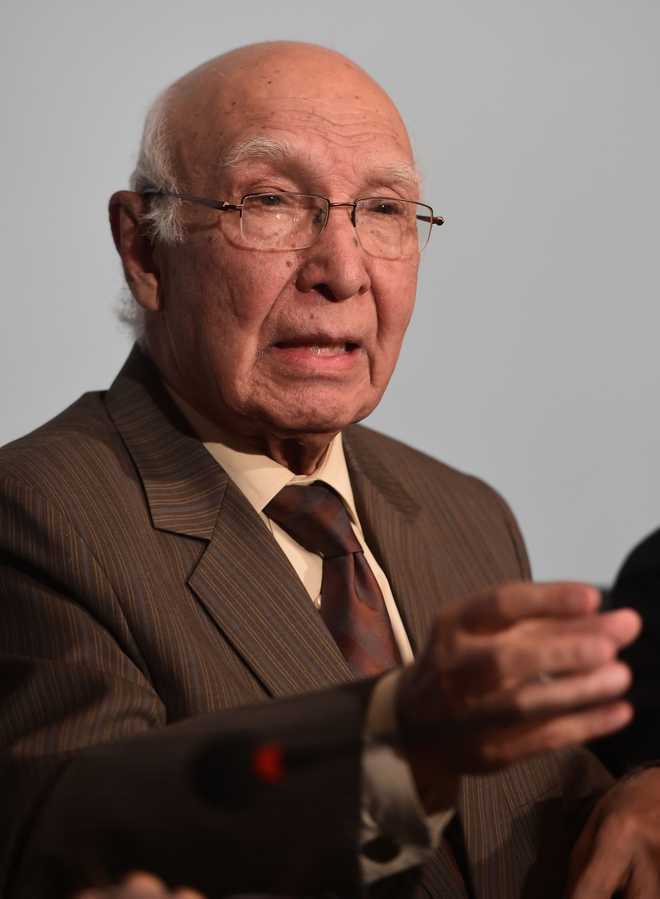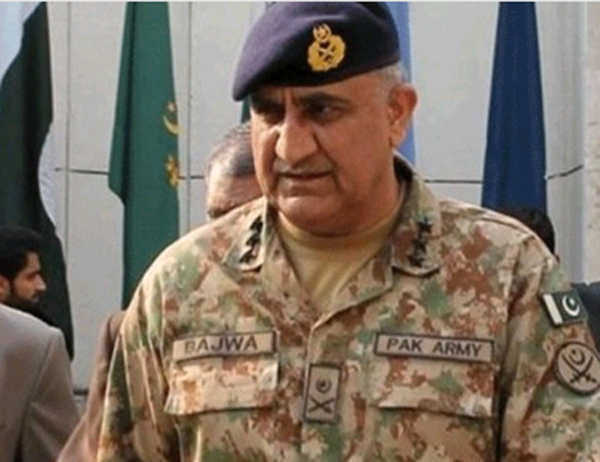JAMMU ATTACKS Army rescues hostage women, kids in Nagrota, kills 3 militants; three infiltrators shot dead in Samba
Seven soldiers, including two Majors, were killed when militants dressed as policemen stormed a military camp in Jammu and Kashmir on Tuesday, triggering a fierce gun battle that raged for more than 12 hours.
A defence statement said the bodies of three militants were recovered and “operations are in progress to sanitise the complete area”.
The brazen attack was the second in as many months since the siege of another army base at Uri left 19 Indian soldiers dead, spiking tensions between India and Pakistan.
In a separate gunfight, 70km from Nagrota, three infiltrators were killed and a senior BSF officer and five jawans were injured near the international border in Chamliyal area of Samba sector, officials said.
While the operation in Chamliyal was over quickly, the gun battle at Nagrota, a town on the highway between Srinagar and Jammu, continued after sundown.
Defence spokesperson Lt Col Manish Mehta said a “hostage– like situation” arose after the militants entered two buildings housing officers and families of the army unit, located about three kms from the headquarters of the 16 Corps. “The situation was very quickly contained and thereafter, in a deliberate operation all were successfully rescued, which included 12 soldiers, two ladies and two children,” the statement added.
The two rescued children are 18 months and two months old, an army officer said.
An officer said the wives of the two army officers blocked the entry of their quarters with “all the household items, making it difficult for the terrorists to break into the houses”.
Staccato bursts of gunfire and loud explosions continued in the cantonment as helicopter gunships and drones hovered overhead in fading light of the day.

“The operation is on, we have suspended it for the night, but the area has been placed under tight cordon, the army does not want to take any risk and we will resume the operations with the first light of the morning (on Wednesday),” the spokesperson said.
The army said the group of heavily armed militants — believed to five-six in number — arrived at the base in a Maruti car before opening fire and lobbing grenades at the sentries on the main gate.
PM Narendra Modi was briefed on the attack by defence minister Manohar Parrikar and army chief General Dalbir Singh in Delhi. No civilians were targeted, Parrikar said.
India blames Pakistan-based militants of targeting security personnel and civilians in the state, a charge Islamabad denies. The latest incidents came on a day Pakistan saw a change of guard in its powerful military with General Qamar Javed Bajwa taking over as the army chief from General Raheel Sharif.
In his farewell address, the outgoing military chief warned India not to mistake his country’s “restraint” over recent tensions in disputed Kashmir for weakness. The violence followed a brief lull in fighting between Indian and Pakistani troops, who have been exchanging heavy mortar and artillery fire for months across the de facto border that divides Kashmir between the two nations.
Relations at the government level have worsened, with the two nations expelling diplomats from their capitals as each side accuses the other of starting the fight.
Following the attack, the administration shut all schools in the cantonment, located close to the National Highway 1A.
Kartar Singh, 55, who has a grocery shop next to the encounter site, said he heard gun shots early in the morning.
“The situation was very quickly contained and thereafter, in a deliberate operation all were successfully rescued, which included 12 soldiers, two ladies and two children,” the statement added.
The two rescued children are 18 months and two months old, an army officer said.
An officer said the wives of the two army officers blocked the entry of their quarters with “all the household items, making it difficult for the terrorists to break into the houses”.
Staccato bursts of gunfire and loud explosions continued in the cantonment as helicopter gunships and drones hovered overhead in fading light of the day.
“The operation is on, we have suspended it for the night, but the area has been placed under tight cordon, the army does not want to take any risk and we will resume the operations with the first light of the morning (on Wednesday),” the spokesperson said.
The army said the group of heavily armed militants — believed to five-six in number — arrived at the base in a Maruti car before opening fire and lobbing grenades at the sentries on the main gate.
PM Narendra Modi was briefed on the attack by defence minister Manohar Parrikar and army chief General Dalbir Singh in Delhi. No civilians were targeted, Parrikar said.
India blames Pakistan-based militants of targeting security personnel and civilians in the state, a charge Islamabad denies. The latest incidents came on a day Pakistan saw a change of guard in its powerful military with General Qamar Javed Bajwa taking over as the army chief from General Raheel Sharif.
In his farewell address, the outgoing military chief warned India not to mistake his country’s “restraint” over recent tensions in disputed Kashmir for weakness. The violence followed a brief lull in fighting between Indian and Pakistani troops, who have been exchanging heavy mortar and artillery fire for months across the de facto border that divides Kashmir between the two nations.
Relations at the government level have worsened, with the two nations expelling diplomats from their capitals as each side accuses the other of starting the fight.
Following the attack, the administration shut all schools in the cantonment, located close to the National Highway 1A.
Kartar Singh, 55, who has a grocery shop next to the encounter site, said he heard gun shots early in the morning.






















































